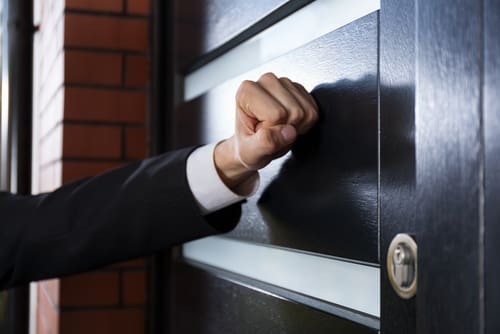The Top 5 Ways to Reduce Your Risk of a Tax Audit

If there is anything business owners dread more than tax season, it’s being audited by the IRS. There are many reasons why the IRS or the state may come knocking on your door for an audit. These reasons can include:
- Accidentally (or deliberately) fudging a figure: Taxation software has made filing taxes seem more straightforward than ever before, but computer filing can also increase the risk of typos. If a figure is off or if a box has been filled in incorrectly, the IRS will take note.
- Claiming too many charitable donations: The IRS isn’t questioning your generosity, but if 30 percent of your income is going towards charity, they may have a few questions. You’ll need proof if you want to deduct those donations.
- Deducting too many business expenses: While business expenses are a common deduction, make sure you know the rules first. For example, the IRS has strict policies around what constitutes a home office or a business trip, and the abuse of these deductions can get the IRS on your back.
Overall, an audit doesn’t necessarily mean you’ve done anything wrong — it just means that something in your return raised a red flag. It is your legal requirement as a business owner and individual to file your taxes, and audits are a way to enforce that.
Fortunately, you can be proactive in reducing your risk of being audited. Here’s how.
Be Mindful of Your Business Registration
It may be too late to heed this warning, but a head’s up for new entrepreneurs and small business owners: sole proprietorships are audited four times more often that corporations by the IRS. That is because sole proprietors are required to fill out Schedule C — a form used exclusively by this group of business owners to report income.
That’s because suspected that Schedule C forms are where much of the gap between what the IRS is supposed to be paid and what it is actually paid each year can be found. Since this form is mandatory for sole proprietors, these business owners will always face added scrutiny.
A solution is to look into registering as a limited liability company (LLC) or full partnership. LLCs are not required to submit Schedule C forms.
Keep Detailed Records Throughout the Year
There is nothing worse than coming to tax season and reaching back in your memory to conclude “I think (specific expense) was $3,000 that month…”
Uncertainty is your enemy, and a definite driver of audits. The IRS doesn’t like “maybes.” As a business owner, you want to be ruthless in your bookkeeping. Keeping track of every dollar going in and out will always help and never harm. Organize this information monthly, and you will have no problem creating a comprehensive tax return when the time comes. These records reduce the risk of being audited, and will be an enormous help if you ever do have to submit documentation to support a claim.
Keeping detailed records will also help you avoid estimating and stating amounts as round numbers — something else that creates a red flag for auditors.
File Your Tax Return on Time
Not only can filing taxes late lead to interest accumulating on any amount you owe on top of your late filing penalty — but it is also a guaranteed way to invite an audit. The IRS suggests filing on time, even if you can’t pay, and suggests that a loan or credit and debit card interest is much less expensive than owing money directly to the government.
If necessary, request an extension of the filing deadline. A first extension is typically granted automatically.
Know What Constitutes a Home Office
As mentioned earlier, home office deductions are a common audit trigger. Nerd Wallet summarizes the IRS’ requirements: you’re eligible to claim home office deductions if you’re regularly working in a space that is exclusively reserved for your business. This doesn’t necessarily have to be a room, but it should be a space that has some sort of permanence — a dedicated desk or corner of your living room, for example. This workspace should be your principal working location, meaning you spend more time there than you do at a coworking space or coffee shop.
Once you are confident your work space is a home office, you can either make deductions based on a $5 per square foot (up to 300 square feet of space) claim or more closely track your costs by estimating percentages of your rent, mortgage, utility bills, and other at-home expenses.
For the new generation of workers living digital nomad lifestyles, it’s important to note that home office deductions cannot be used for hotels, hostels, or other temporary accommodation where you’re not issued a lease or contract.
Once again, keeping detailed records of home office expenses is key. If you’re not sure if an expense can be deducted, do some research online, or speak to a tax professional before filing the claim.
Check Your Numbers — Thrice
One of the silliest and most frustrating reasons to get audited is because human error has led to a mistake on your return. Typos happen, but the IRS places the responsibility on you and your accountant to correct mistakes ahead of time. The IRS can’t tell from your return if a typo was truly a mistake or if it was deliberate. No matter how you’re filing your taxes, make sure you double and triple check your numbers.
Ultimately, there is no way to guarantee that you won’t be audited. Heeding this cautionary advice, however, will at least help reduce the attention of auditors.
Remember — the IRS can issue an audit up to three years after you’ve submitted your return. So file away your meticulous records in the closet. If it goes your way, they’ll collect dust — but otherwise, it could be documentation you’re glad you kept.



